If your dog has kennel cough, navigating the quarantine period can feel like walking through a maze. Knowing how long to keep your furry friend isolated is crucial, much like finding the right path in a maze.
But fear not, as there are key facts and guidelines that can help you make informed decisions about the duration of the quarantine. By understanding the factors that influence the length of the quarantine and the best practices to follow, you can ensure the well-being of your dog and other canine companions.
Key Takeaways
- Quarantine infected dogs for a minimum of two weeks after their last coughing episode.
- Even if symptoms subside, the dog can still be contagious.
- Factors such as severity of illness, exposure to other dogs, and underlying health issues can affect the length of quarantine.
- Consult a veterinarian before ending the quarantine and gradually reintroduce normal activities after confirmation of non-contagious status.
Kennel Cough Quarantine Duration
To effectively prevent the spread of kennel cough, it’s essential to isolate infected dogs for a minimum of two weeks after their last coughing episode. Kennel cough, a highly contagious respiratory infection, can easily spread through direct contact with an infected dog or through the air. During the two-week quarantine period, it’s crucial to keep the infected dog away from other pets to prevent the spread of the infection. Even if the symptoms subside, the dog can still be contagious, so adhering to the full quarantine duration is vital.
It’s important to monitor the infected dog for signs of improvement during the quarantine period. While most cases of kennel cough resolve within a few weeks, any worsening of symptoms or lack of improvement should prompt a visit to the veterinarian. In some cases, kennel cough can progress to pneumonia, especially in young puppies or older dogs. The veterinarian can provide guidance on when it’s safe to end the quarantine and allow the dog to interact with others.
Factors Affecting Quarantine Length
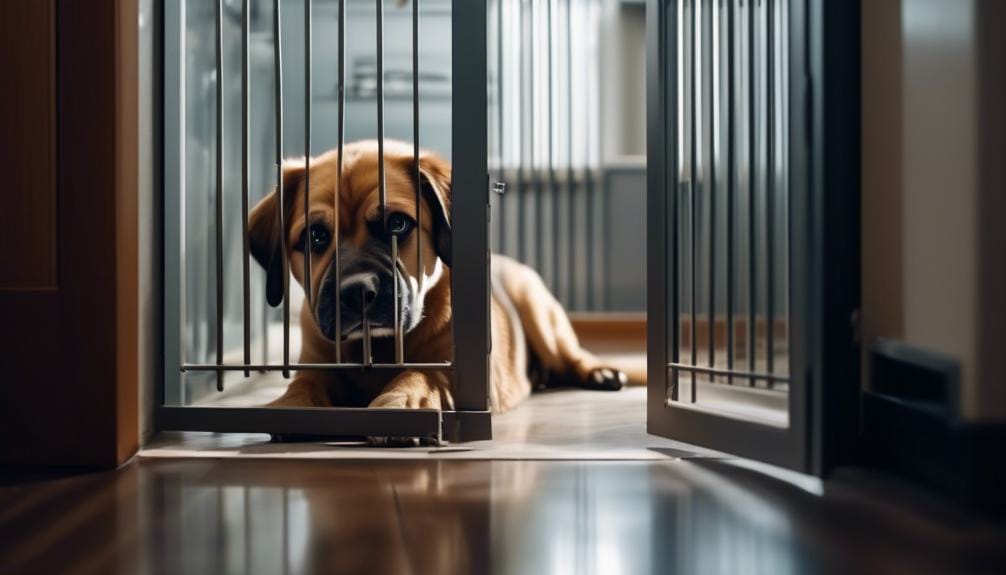
After isolating your dog for the recommended two-week quarantine period following the last coughing episode, it’s essential to understand the various factors that can influence the length of quarantine for dogs with kennel cough.
- Severity of the illness: The severity of your dog’s kennel cough can impact the length of quarantine. Mild cases may resolve within 10-14 days, while severe or persistent coughing may require a longer isolation period and veterinary evaluation.
- Exposure to other dogs: If your dog has been in direct contact with other canines, the risk of spreading the infection increases. This exposure may necessitate an extended quarantine period to prevent transmission to other dogs.
- Presence of complications: Dogs with complications or underlying health issues, such as puppies, older dogs, or those with compromised immune systems, may need a longer quarantine to ensure complete recovery and reduce the risk of spreading the respiratory infection.
Understanding these factors and their influence on quarantine length is crucial for effectively managing your dog’s kennel cough and preventing the spread of this contagious respiratory illness to other dogs.
Quarantine Guidelines for Kennel Cough
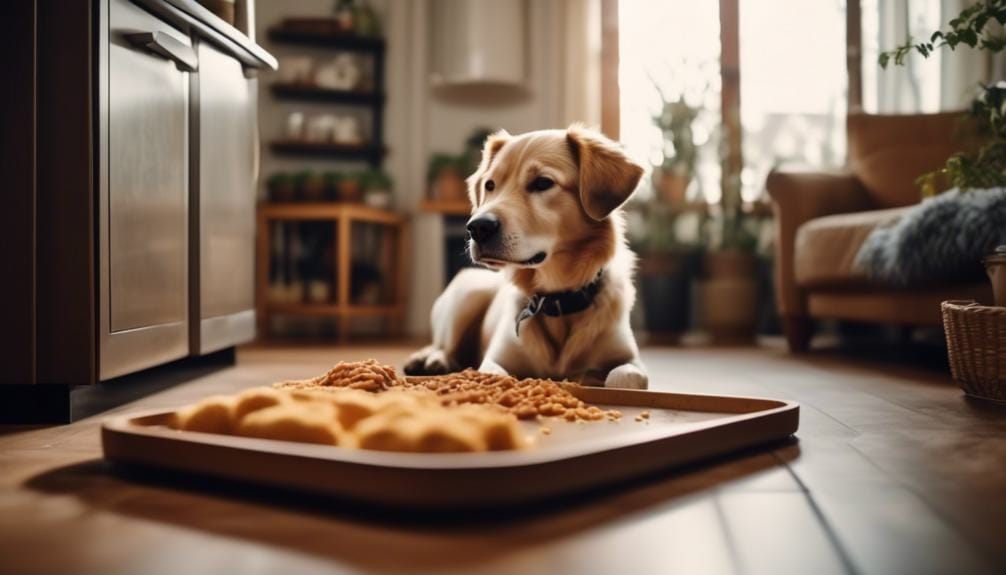
When implementing quarantine guidelines for kennel cough, it is essential to adhere to the recommended isolation period and take proactive measures to prevent the spread of the infection. Kennel cough, caused by the Bordetella bronchiseptica bacteria, is highly contagious and can spread through respiratory secretions. To visually represent the quarantine guidelines, refer to the table below:
| Quarantine Guidelines for Kennel Cough |
|---|
| 1. Quarantine infected dogs for at least two weeks after the last cough to prevent spreading the infection. |
| 2. Clean and disinfect all areas and items touched by the infected dog to prevent the spread of the disease. |
| 3. Isolate infected dogs from other dogs to avoid close contact and sharing of items like food/water dishes and bedding. |
| 4. Keep infected dogs away from dog parks, kennels, and other areas where they could spread the infection to other dogs. |
| 5. Consult a veterinarian if symptoms worsen or do not resolve, as severe cases may require advanced care and treatment. |
Following these guidelines is crucial to curb the spread of kennel cough. Additionally, vaccination against Bordetella can help prevent the infection. If your dog is diagnosed with kennel cough, it’s vital to follow these isolation measures and seek advice from veterinary specialists regarding treatment options, including cough suppressants, to alleviate your pet’s discomfort.
Monitoring Your Dog During Quarantine
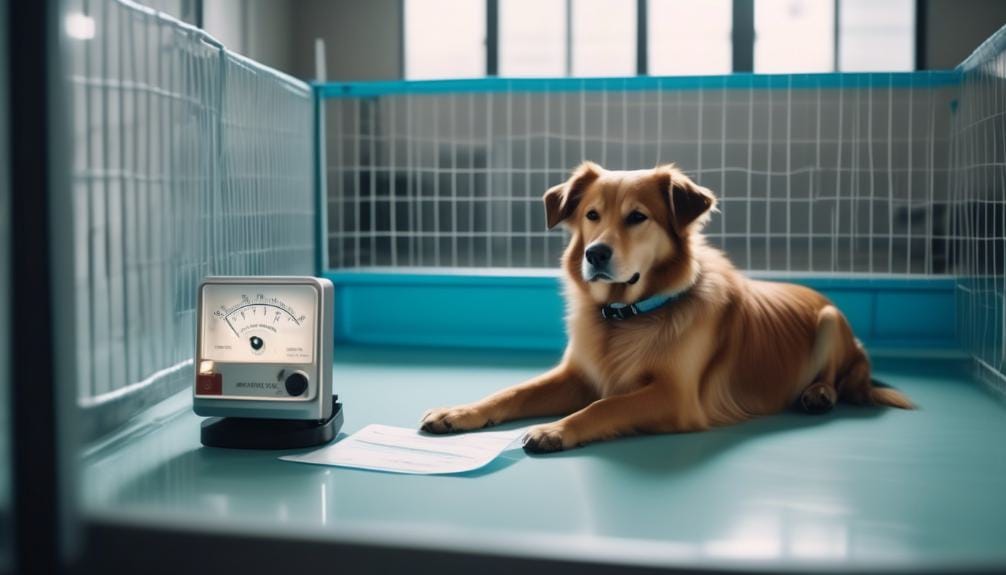
Consider closely observing your dog for any signs of coughing, sneezing, or nasal discharge as part of the monitoring process during quarantine. Kennel cough, caused by the highly contagious Bordetella bronchiseptica bacteria and canine adenovirus type 2, can lead to clinical signs that need to be monitored closely.
Here’s what to watch for:
- Observe any changes in your dog’s energy levels and appetite, as a decrease in these could indicate a more serious problem.
- Monitor your dog’s overall behavior and look for any signs of difficulty breathing or increased effort when breathing.
- Note the duration and severity of any coughing episodes, and contact your veterinarian if the cough worsens or persists.
It’s crucial to keep your dog isolated from other dogs for at least two weeks to prevent spreading the infection. Continuously monitor their symptoms until they improve. If you notice any concerning changes, seek veterinary care promptly.
Ending the Kennel Cough Quarantine
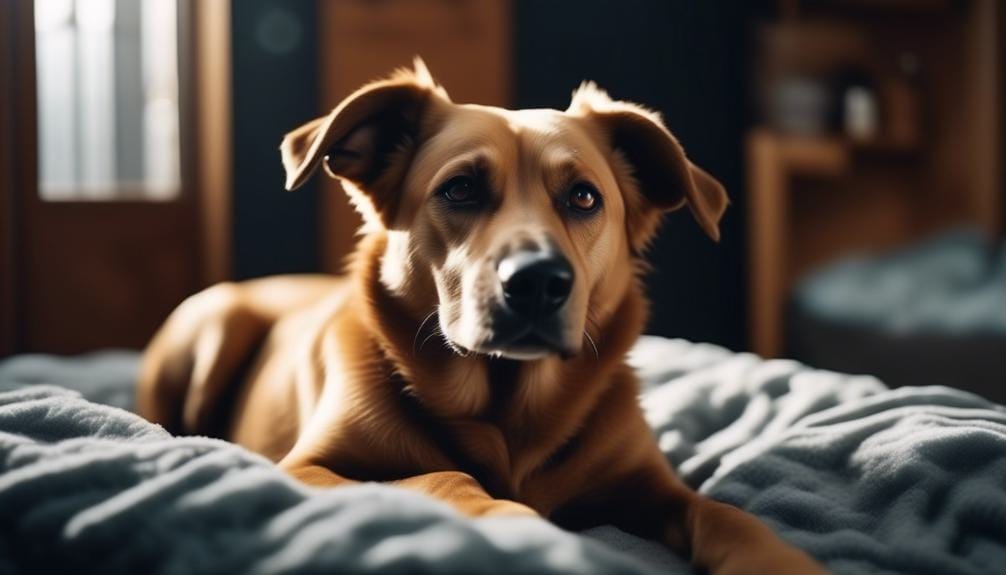
As your dog’s quarantine period for kennel cough comes to an end, it’s crucial to take proactive steps to ensure a safe and successful transition back to normal activities.
Kennel cough, being highly contagious, requires careful consideration before ending the quarantine. Even if your dog appears to be recovering and showing no signs of the illness, it’s important to remember that kennel cough can remain infectious for up to two weeks after the last cough.
Before ending the quarantine, consult your veterinarian to confirm that your dog is no longer contagious. Additionally, ensure that your dog has completed the full course of any prescribed medications and has received appropriate support care during the quarantine period. This support care may include nutritious food, a stress-free environment, and proper rest.
Once the veterinarian confirms that your dog is no longer contagious and has completed the necessary care, you can gradually reintroduce normal activities. Keep in mind that vaccination is available for high-risk dogs, although it may not entirely prevent kennel cough.
Frequently Asked Questions
How Do You Know When Kennel Cough Is No Longer Contagious?
Once your dog stops coughing, it’s a good sign that kennel cough is no longer contagious. Keep them isolated for at least two weeks after their last cough to ensure they’re fully recovered and not spreading the infection.
How Long Do You Isolate a Dog With Kennel Cough?
Isolate your dog with kennel cough for at least two weeks after the last cough. This prevents spreading the infection to other dogs. Remember, symptoms typically show up within 3-10 days of exposure, and most cases resolve without treatment.
What Is the Protocol for Kennel Cough?
Isolate your dog with kennel cough for around two weeks to prevent spreading the infection. Vaccinate annually for protection. Symptoms usually resolve in 7 to 10 days, but consult a vet for severe cases.
What Is the Timeline for Kennel Cough?
You should quarantine your dog with kennel cough for around two weeks to prevent spreading the infection. Most dogs recover within 7 to 10 days, but it’s important to keep them isolated to avoid transmission.
Conclusion
So, remember to keep your dog isolated for about two weeks if they’ve kennel cough.
Avoid contact with other dogs and public places to prevent the spread of the disease.
Monitor your dog’s symptoms and consult with your vet before ending the quarantine.
By following these guidelines, you’ll help ensure the health and safety of other dogs in your community.

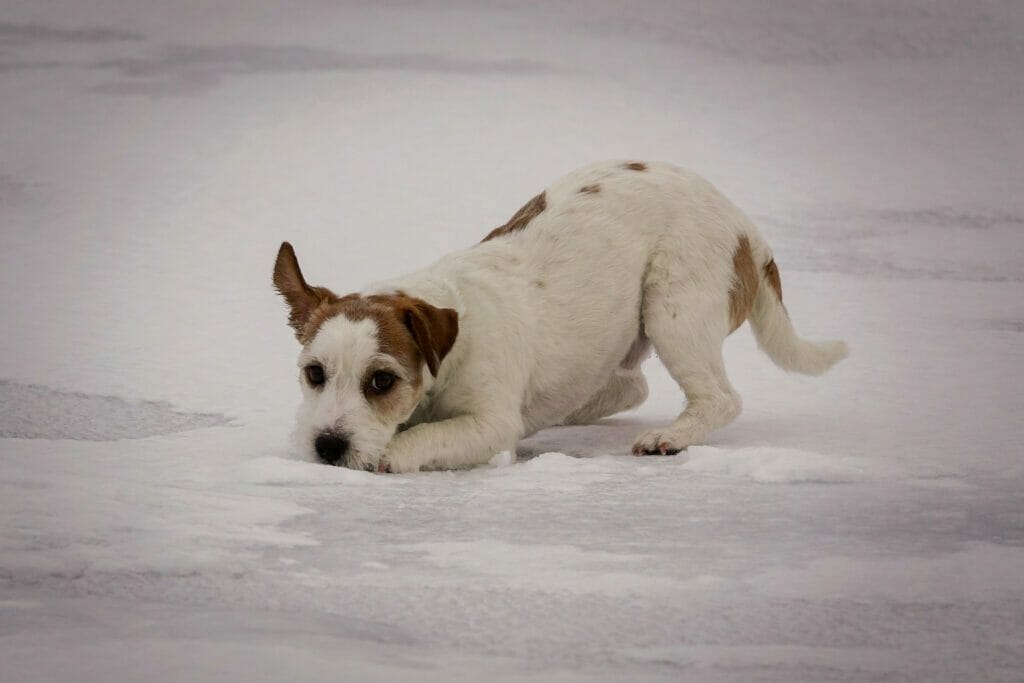
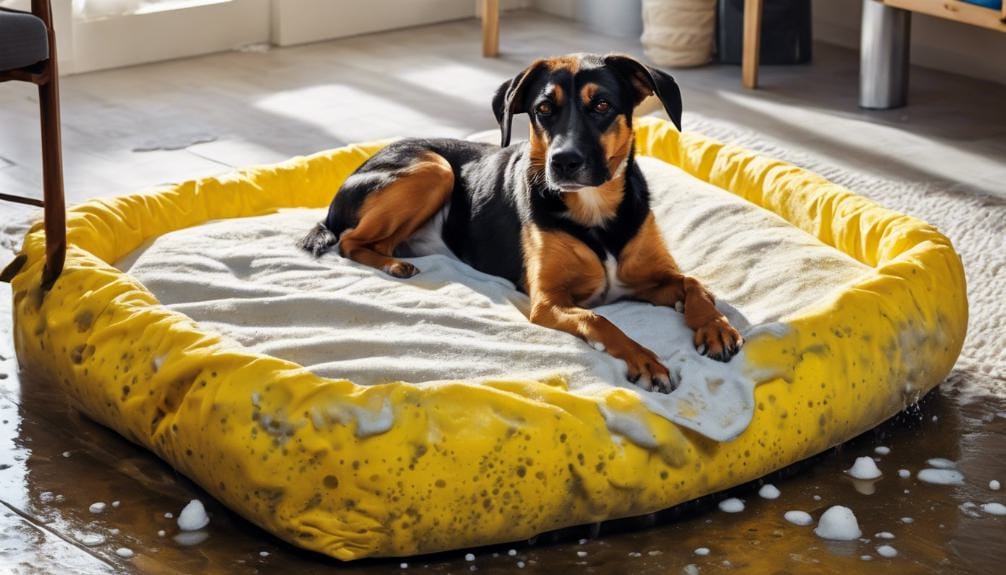
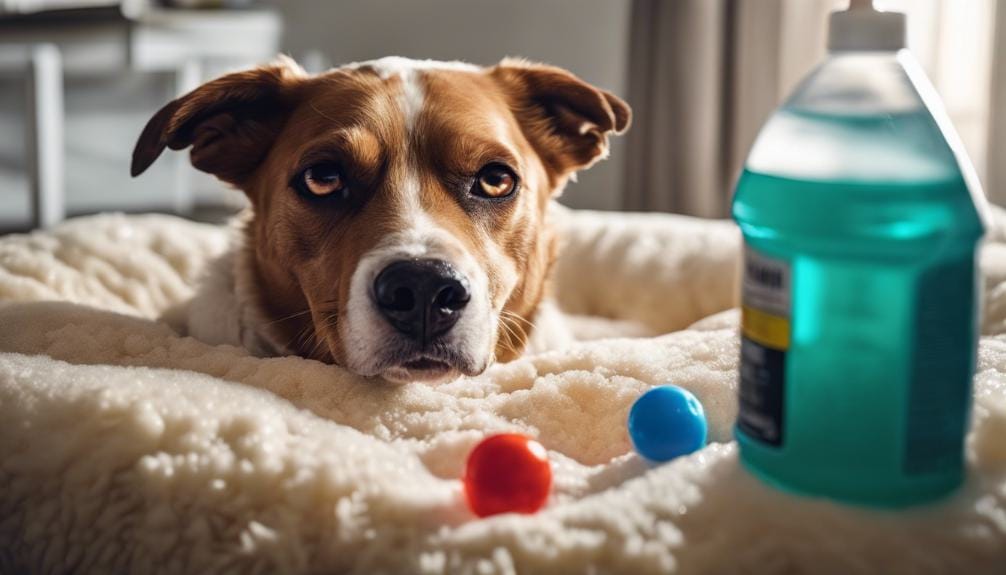
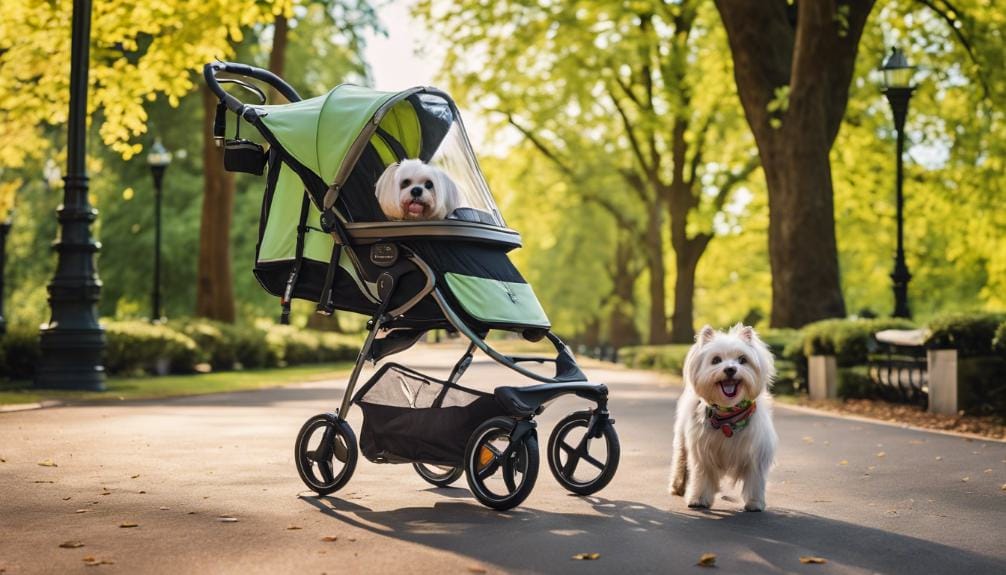
Leave a Reply
You must be logged in to post a comment.